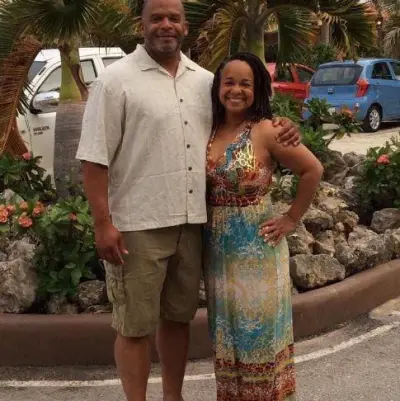Black caregivers: taking care of themselves and others
Share
Explore Our Galleries
Breaking News!
Today's news and culture by Black and other reporters in the Black and mainstream media.
Ways to Support ABHM?
By ReShonda Tate, Defender

It’s a Monday morning in Murfreesboro, Tenn., and Shelly Taylor Page is rushing to get to her full-time job as a law professor at Southern Illinois University. But before she can get out the door, she must contend with her other full-time job as a caregiver to her elderly mother, who has dementia.
“I had to bring my mother from Houston to live with my husband and I here in Tennessee. And I’m not going to lie, it’s hard,” Page said. “I walk into her bedroom and she’s packed up everything. I have to find the toothbrush, the comb. I have to explain to her why she’s living in my house because in her mind, it’s 2006. She’s belligerent and wants to go home. Many mornings, I just burst out crying because I’m tired and I have to get to work.”
Page is grateful for the support of her husband, James, who works from 8 a.m. to noon, and helps out a lot in caring for her mother, GiGi. Support, she says, is crucial.
“The first two months was so hard. I’m yelling at my mom because I didn’t really get it. I struggle with my weight and she’d call me a fat, ugly b*tch and I would just break down. My husband steps in to remind me, ‘That’s not your mama saying that, it’s the disease.’ I didn’t get that. So it’s super important to have a serious support network, not just to help you physically, like if you need to run to H-E-B, but mentally,” Page said.
[…]
November is National Family Caregivers Month, and as the population ages, more caregiving is being provided by people who aren’t health care professionals. Page is one of 4.3 million Americans who have found themselves in such a role.
Head to the original article to read the stats.
Caring for others ahead of yourself can lead to health concerns.









Comments Are Welcome
Note: We moderate submissions in order to create a space for meaningful dialogue, a space where museum visitors – adults and youth –– can exchange informed, thoughtful, and relevant comments that add value to our exhibits.
Racial slurs, personal attacks, obscenity, profanity, and SHOUTING do not meet the above standard. Such comments are posted in the exhibit Hateful Speech. Commercial promotions, impersonations, and incoherent comments likewise fail to meet our goals, so will not be posted. Submissions longer than 120 words will be shortened.
See our full Comments Policy here.